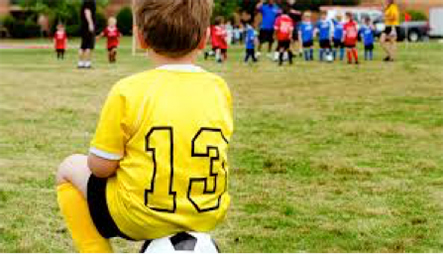
Jackie Robinson said, “Life is not a spectator sport!” How many times have we heard numerous accounts of that true piece of wisdom, and how often do we ignore its inner meaning? In my book Detour, I like to point out that we should do more than simply care—we should help.
I would like to share a delightful example of “helping.”
This year, I attended my 40th high school class reunion. Ouch! One of my former classmates was a pleasant young woman and an exceptional student. She was not a braggart or arrogant, just motivated to do well. She was in the very top ten percent of our class and could have been a “guaranteed lock” to get into any major university but for one problem: her family was extremely poor. In fact, back then, if she wanted to see the inside of a school offering a higher education, her only viable option was to go to the local community college and hope a four-year school might consider her after she completed her first two years. She would undoubtedly lose credits, but there was no other choice.
Barbara is the first to admit that she felt sorry for herself in those days. As opposed to most other students at our suburban Pennsylvania school, her parents even lacked the funds to buy her a clunker of a car. She rode around town on a bicycle. She didn’t like it, and it made her sometimes feel ashamed, but she conceded that at least the bicycle kept her in great shape.
The White Duck
Living in close proximity to Moraine State Park, Barbara was never very far from the beautiful manmade lake. She enjoyed the lake as it seemed so calm and peaceful. Naturally, the lake was always plentifully populated by an assortment of ducks and geese. As Barbara loved animals, the ducks amused her and made her feel happy.
As she recalled at our reunion, one day in the early fall of our senior year, as she rode past the local lake, she saw a somewhat unusual sight: among all of the ducks and geese was a small white duck that had probably been someone’s Easter present! The duck seemed isolated from the rest of the population. In fact, the duck seemed sickly and underweight.
That day, Barbara had the remnants of a sandwich, and instead of gobbling it down she maneuvered into a position at the lake’s edge to at least get a piece of the crust to the little white duck. The duck ate it with gusto. This tiny act of kindness led to a pattern. Every day, including weekend days, Barbara came to the lake with popcorn or a cookie or a crust of bread. She took the time to feed the duck and, after a while, when she called it, it came paddling over.
As the weeks wore on, the lake grew emptier as the flocks of native ducks started to fly south. One day in late fall, as the weather was turning sharply colder, only the white duck remained. By a stroke of luck, Barbara’s uncle worked for the county parks and recreation department. She asked him if it would be possible to move the duck to the local zoo. Her uncle agreed, and the white duck was captured and found a nice home at the Pittsburgh Zoo with other “discarded Easter ducks.” The duck grew strong and healthy.
Do More
The story then took an unexpected turn. Barbara’s guidance counselor contacted her and explained that a local foundation was interviewing promising students for full, four-year and in-state scholarships. She was told that the competition would be tough and to anticipate a rigorous interview in front of a selection committee.
On the appointed day, Barbara put on her best outfit and tried to anticipate the questions she would be asked. She was brought before a committee of educators and foundation people who asked her about her courses and extracurricular activities. Finally, she was asked about something she was exceptionally proud of doing in the past year.
She at first drew a blank. She was up against the best and the brightest, and she could think of nothing special. She always felt she was someone who flew below the radar. Panic swept over her. Finally, in desperation, she started to talk about Moraine State Park and the little white duck.
When she was done, a kindly, gray-haired teacher asked her why, of all the stories she could have mentioned, she decided to use that particular one.
“It was the first time in my life I ever thought about something other than myself,” she said.
In due course, Barbara received a telephone call from the foundation. She had won a full scholarship to any school in the state. She chose Penn State University and eventually graduated with a degree in finance.
If there is one thing I have learned, it only takes one moment to change your life forever. To change your thinking, reevaluate everything you think you know, and find out who you are. Please don’t be a spectator. Don’t talk about making the world a better place. Help the world to be a better place. The world needs you.
You don’t need a reason to help people. One of the greatest gifts you can bestow upon another person is kindness. If someone is in need, lend him or her a helping hand. Do not wait for the thank you or payback. True kindness lies within the act of giving without the expectation of something in return. This can be a wonderful life if you realize it’s about doing something larger than yourself. It’s about serving this world and helping others. It’s time to get in the game!
For more information about Hall of Fame speaker and bestselling author Steve Gilliland, please contact: steve@stevegilliland.com / 724-540-5019 / www.stevegilliland.com.